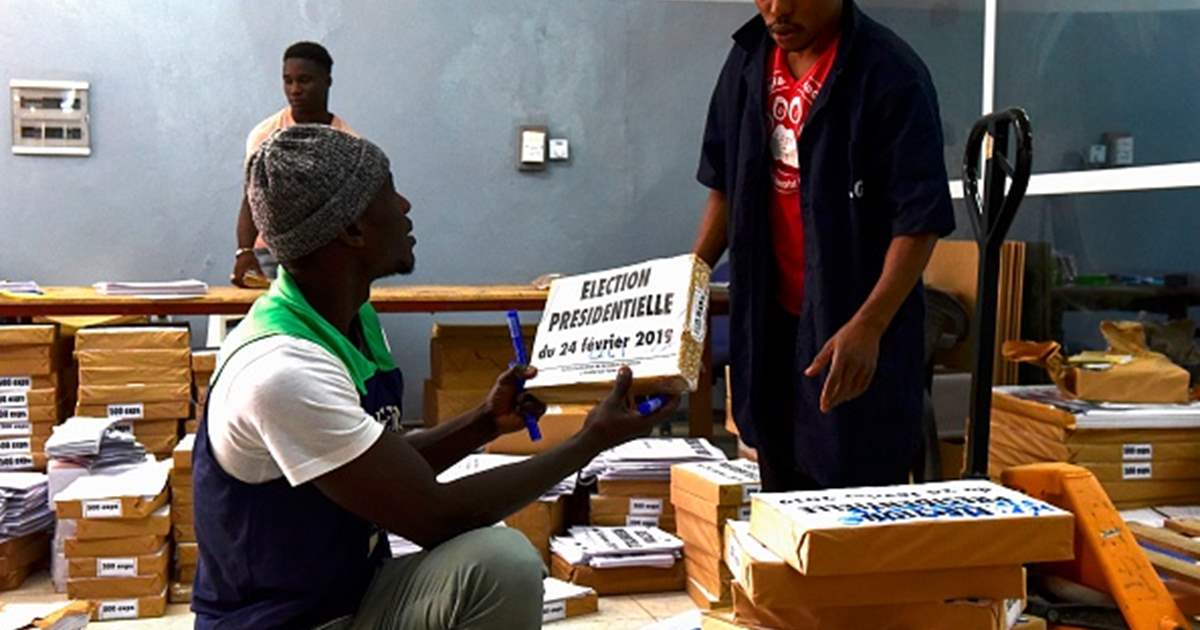Two killed during campaign rallies
Journalists caught up in violence
Pressures on pro-democracy activists
Authorities in Senegal should take all appropriate measures to ensure that the Presidential election is held in a climate that is free from violence and respects the freedom of all people to express their views, Amnesty International said ahead of Sunday’s presidential polls.
On 11 February during campaign rallies, two people were killed in the south eastern town of Tambacounda. Many others, including journalists, were injured following violent clashes between supporters of incumbent President Macky Sall who is seeking a second term, and those of El hadj Issa Sall, one of the opposition candidates.
“It is unacceptable that people are killed during political rallies. Those responsible for these acts must be identified and brought to justice in fair trials,” said François Patuel, Amnesty International’s West Africa researcher.
“While authorities should protect and promote human rights in the context of elections, particularly the right to freedom of expression, association and peaceful assembly, all candidates should also remind their supporters to refrain from using violence in any circumstance.”
Senegal’s election campaigning started on 4 February. A week later, it was marred by the killing of two people in Tambacounda. Macky Sall’s backers said campaign posters for their candidate were sabotaged by the opposition. Clashes turned deadly when a young supporter of Macky Sall was stabbed to death.
Several individuals in El hadj Issa Sall’s procession were filmed carrying machetes. They were stopped, arrested and disarmed by security forces and are now being prosecuted.
Journalists caught up in violent reprisals
As reprisals for the killing, groups of youths drove motorcycles to chase El hadj Issa Sall’s procession throwing stones and projectiles. A 22-year-old motorcycle driver was hit by a car and later died.
The President of Motorcycles Drivers of Tambacounda told Amnesty International that 14 drivers were injured.
The reprisals also led to material damage. At least two vehicles were burnt. These include the bus carrying around 27 journalists covering El hadj Issa Sall’s campaign. The journalists’ equipment was also damaged. Amnesty International spoke to three journalists who confirmed they were injured, with trauma to the mouth, muscle soreness and stitches. The other journalists ran away to escape the violence.
“Journalists do essential work to keep the public informed, often in difficult circumstances including during and after the election process. They must be protected to do their work freely, and without fear of attacks or threats,” said François Patuel.
Pressures on pro-democracy activists
Civic space has also shrunk in recent months, with pressures on non-governmental organizations and pro-democracy activists increasing.
In November last year, at least four International non-governmental organizations (INGOs) were summoned by the police as part of an investigation into the sources of funding of pro-democracy civil society organization Y’en a marre (Enough is Enough). Y’en a marre are a group of rappers and journalists who joined forces in January 2011 to encourage young people to register to vote in the country’s election and exercise their right to freedom of expression.
The representatives of the INGOs were questioned for several hours without access to a lawyer. One of the INGOs had its authorization to operate in Senegal repealed on the basis that it “participated to irregular funding operations to an association which does not enjoy the status of public utility”. It had to cease all its activities in Senegal. The others have their authorizations under review.
The Ministry of Interior argues that Y’en a marre which has remained active since the 2012 election, undertaking advocacy, monitoring and education on land reforms, constitutional reforms and electoral processes, is not eligible to receive foreign funding as it does not “enjoy the status of association with status of public utility”.
“The fact that the investigation into Y’en a marre started a few months before the elections when the association has existed for years, clearly indicates that the aim is to intimidate civil society groups ahead of the elections,” said François Patuel.
‘’Questioning whether pro-democracy movements can access international funding and putting pressure on their funders is a major setback for Senegal.”
A large number of activists in Senegal use their online presence for civic and political engagement. As elections approach, Amnesty International calls on the authorities not to arbitrarily restrict access to the internet and ensure that journalists, human rights defenders and pro-democracy activists can continue to carry out their work.
“Whoever wins the elections has an opportunity to put human rights at the centre of the agenda,” said Francois Patuel.
For more information or to request an interview, please contact Lucy Scholey, Amnesty International Canada (English): + 613-744-7667 ext. 236; lscholey@amnesty.ca
Background
Five candidates, including incumbent President Macky Sall are contesting the 24 February elections. The four others are: Idrissa Seck, Madické Niang, El Hadj Issa Sall and Ousmane Sonko. Two other leading opposition figures, Karim Wade and Khalifa Sall, were barred from contesting the election.
Amnesty International’s report Senegal: All Talk No Action details recommendations to the authorities, including strengthening the independence of the judiciary and protecting the rights to freedom of expression and peaceful assembly.






















